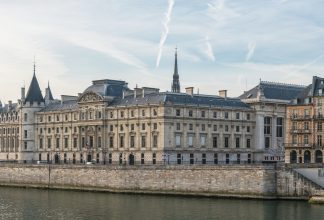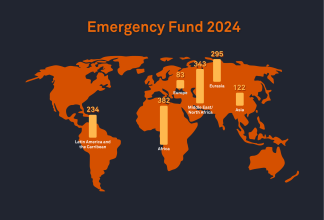Clampdown on Civil Society in Russia
A very disturbing trend is going on at this moment in Russia. Just before the summer holidays, the Russian State Duma has adopted a number of bills, at a furious pace, restricting freedom of expression and obstructing the work of the civil society. Civil Rights Defenders is very concerned by these negative developments and call on the Russian President Vladimir Putin not to sign the bills.
On 12-13 July, the Russian State Duma adopted two controversial bills curbing freedom of expression. The first bill provides for the creation of a blacklist of websites, effectively allowing for censorship of the Internet. The second bill reintroduces libel into the country’s criminal code, less than a year after it was decriminalized. A third bill was also adopted on Friday, 13 July, which imposes increased regulation on internationally funded NGOs designated “foreign agents”.
All three bills have now been adopted in the third reading, and only Putin’s signature is needed for them to be enforced.
“Following on the back of the recently adopted legislation which steeply raised fines for participation in unsanctioned public rallies, these legislative initiatives amount to a concerted assault on civil society in Russia. We are very concerned by these negative developments and call on the Russian President Vladimir Putin not to sign the bills. The governments of Sweden and other EU countries should make clear that Russia needs to uphold the rights to freedom of expression, and freedom of assembly and association, in line with its international obligations in order to be an equal partner for democratic states,” said Joanna Kurosz, Eurasia Programme Director, Civil Rights Defenders.
In the face of massive criticism from Russia’s Internet community (including Wikipedia, which closed the Russian version of its site in protest for 24 hours), the bill on introducing a register of blacklisted websites was amended to specify the criteria under which the authorities would be allowed to block a website without a court order.
Nevertheless, the final bill adopted on 12 July retains provisions for closing down websites without due process. In addition, it allows for the blacklisting of entire Internet domains and IP-addresses, deemed by a court to be distributing illegal information. Ostensibly aimed at protecting children from harmful information, there is a risk that the law will be arbitrarily enforced, leading to censorship.
In a legislative reform welcomed by Civil Rights Defenders, libel was decriminalized in December 2011, under former President Dmitry Medvedev’s administration. As a result, the charges of defamation against the former chairman of Human Rights Centre Memorial, Oleg Orlov, were dropped in January 2012. The reintroduction of libel as a criminal offense provides for fines of up to 5 million roubles (125 000 EUR), and represents a clear deterioration of freedom of expression in Russia.
The much-criticised bill on NGOs, adopted on 13 July, was also modified from its original version after President Vladimir Putin argued that religious organisations, as well as state- and municipal institutions, should be exempted from the law. The bill requires foreign-funded NGOs engaging in “political activity” to publicly declare themselves “foreign agents” – a term with strongly negative connotations – and to submit to particularly rigorous reporting and auditing requirements. Failure to comply with the new regulations can lead to fines of up to 1 million roubles (25 000 EUR), and even prison sentences.
“The bill specifically states that a number of areas are not to be considered ‘political’. However, human rights is not mentioned among them, which leaves the impression that the intended targets of the new legislation are human rights organisations, the aim being to discredit them and obstruct their work,” said Joanna Kurosz.


